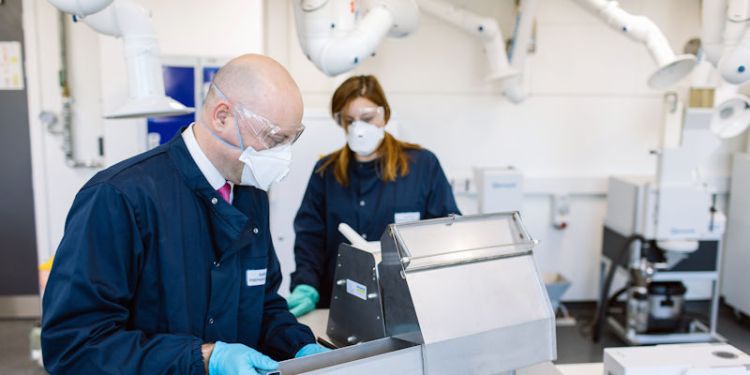Research capabilities and collaborations

Facilities and capabilities
As well as housing a range of state-of-the-art facilities in the School and working alongside departments to conduct impactful research, we collaborate with organisations which operate outside the University.
Laboratory facilities
We have a dedicated suite of laboratories providing capability for sample preparation, chemical and biological analysis, custom bench-scale test rigs and portable equipment for field sampling. These facilities include a molecular laboratory equipped for extracting microbial DNA from environmental samples, and sample preparation for conventional and next-generation sequencing, analytical equipment including GC, FTIR, nmr and IC, a specialised chamber for room-scale bioaerosol experiments, and a dedicated solid waste characterisation laboratory capable of representative sub-sampling with sorting and size reduction equipment.
Numerical modelling
Numerical modelling is a key strength of the institute, with research using both established methods and new techniques for simulating a range of health and environmental challenges. This ranges from the coupling of chemical and biological models with flow simulation tools to the development of in-house codes for river modelling, sediment transport and real-time CFD.
Field Based Research
Field based research enables in depth evaluation of international challenges through to testing and evaluating new approaches developed through our projects. Examples include sampling of microorganisms in UK hospital environments, studies on the emissions from open waste sites in Nigeria, pilot studies on sludge drying and composting in Bangladesh, and a large programme of survey and community based research conducted in numerous countries focused on water and sanitation. Field based research is a highlight for many of our PhD students who gain both technical skills and experience of the complexity of conducting research in real-world environments.
Interidsciplinary research and collaborations
We collaborate with centres and institutes across the University of Leeds including strong links with:
water@leeds, one of the largest water-facing research and training centres in the world that brings together academics with expertise in water technologies, policy, basic science. water@leeds collaborates with industry, governments, charities and academics in wide-ranging research and innovation initiatives, supported by world-class facilities.
Centre for Global Development, an interdisciplinary research centre that draws together academic expertise in the field of international development. CGD promotes academic excellence by generating knowledge on development issues in low income countries, and by pursuing collaborative research with institutions in the developing world.
Global Food and Environment Institute, this recently established institute is a major university initiative to establish global academic leadership in the field of food and environment research. It acts as a focus for our research on urban food consumption and human health, food and livelihoods in the Global South, international food supply systems, and environment, crops and agri-food.
Outside the University we work closely with numerous academic, industry, governments and NGO partners at national and international levels across all our research areas. We have strong relationships with influential international partners including the World Bank, Department for International Development (DFID), UNICEF, the United Nations Joint Monitoring Program for Water Supply and Sanitation, WaterAid, and a wide number of collaborators in Africa, Latin America and South Asia.

